MercoPress. South Atlantic News Agency
Tag: Indec index
-
Tuesday, May 28th 2013 - 06:38 UTC
Lawmakers accuse Cristina Fernandez before a federal court of falsifying stats
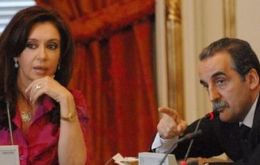
Several Argentine lawmakers from opposition parties accused President Cristina Fernandez and Domestic Trade minister Guillermo Moreno of allegedly ‘falsifying” the figures published by the government’s official stats office Indec.
-
Friday, May 24th 2013 - 06:51 UTC
Argentina’s trade surplus shrank 38% in April as imports soar 32%

Argentina's trade surplus shrank 38% in April from a year earlier to 1.15bn, revealed the national statistics institute Indec, indicating the government has significantly loosened restrictions on imports. A year ago the surplus was 1.85bn dollars.
-
Saturday, May 18th 2013 - 06:29 UTC
Economic activity in Argentina expanded 2.6% during March, says Indec
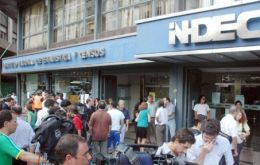
Argentina's economic activity expanded 2.6% in March from a year earlier and 0.7% over February, the national statistics institute Indec said on Friday. Accumulated growth in the 12 months through March was 1.3%, down from 1.9% in full-year 2012.
-
Wednesday, May 15th 2013 - 07:32 UTC
Argentina April inflation 23.67% in 12 months; partial prices-freeze to continue until October election

Argentina’s inflation in April was 1.52% and 23.67% in the last twelve months according to the so called Congress index which is calculated by private agencies and was released on Tuesday.
-
Wednesday, May 8th 2013 - 09:23 UTC
Argentines keep travelling overseas despite the ‘dollar clamp’ and the ‘Coca Cola formula’
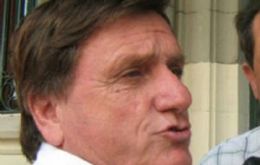
Despite the ‘dollar clamp’ and other obstacles to purchase the US currency in Argentina, the number of Argentines travelling abroad increased by 8% last March in comparison to the same period the year before although they spent 6.2% less than in 2012, it was reported by the National Statistics Bureau (INDEC).
-
Tuesday, May 7th 2013 - 09:28 UTC
IMF again warns Argentina about protectionist and foreign currency exchange policies
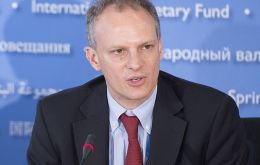
The International Monetary Fund Director for the Western Hemisphere, Alejandro Werner, warned on Monday about the “negative effect” that the existence of two foreign currency exchange markets and protectionist policies bring to Argentina.
-
Friday, April 26th 2013 - 07:36 UTC
Argentina industrial production down in March and in first quarter compared to 2012

Argentina’s industrial output registered a 0.3% drop in March year-on-year, according to Indec the official statistics bureau. The report stated that the manufacturing activity climbed 1.5% compared to February and dropped 0.4% annually in the first three months.
-
Thursday, April 25th 2013 - 21:51 UTC
Economy minister and aides tell Greek television: “in Argentina we don’t discuss inflation”
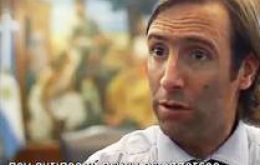
Economy minister Hernan Lorenzino became the laughing stock of Argentina when a video was revealed showing him suspending an interview with Greek television arguing that Argentine inflation ‘is too complex’ and telling his aides, ‘I want to leave’. One of the aides then tells the Greek reporter that in Argentina ‘we don’t discuss inflation’.
-
Thursday, April 25th 2013 - 06:07 UTC
‘Official poverty’ in Argentina 2.5 million people; private estimate: 11 million

The rate of poverty in Argentina dropped to 5.4% last year and indigence was down to 1.5%, according to data released by the controversial government’s stats office, Indec. A person ceases to be indigent in Argentina if he can feed on 6 Pesos daily, which based on the official rate is just over one dollar but in the parallel market 75 US cents.
-
Saturday, April 20th 2013 - 08:32 UTC
Argentines expecting inflation above 30% for the next twelve months
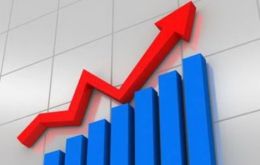
Argentines are expecting an inflation of 34.2% in the coming twelve months according to the average from a monthly report released by a prestigious private university research centre based on surveys,
